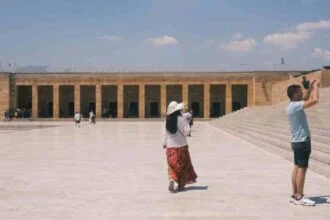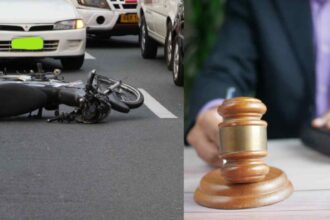Introduction – Have you ever taken the Vande Bharat Express?
Indian-made semi-high-speed train Vande Bharat Express, popularly referred to as Train 18, is a popular option. As part of the ‘Make in India’ movement, it was created by the Integral Coach Factory (ICF). It was introduced on February 15, 2019, and can travel up to 160 km/h (99 mph) making it India’s fastest train. It has a modern appearance similar to that of bullet trains and has 16 air-conditioned coaches, including executive and chair car coaches, with a total capacity of about 1,128 people.
Also Read: New liquor rules in Indian Railways
Comfortable seats, roomy interiors, panoramic windows, bio-vacuum restrooms, Wi-Fi, CCTV cameras, and an entertainment system are all features of the Vande Bharat Express. With regenerative braking technologies and cutting-edge safety measures, it places an emphasis on sustainability and energy economy. The Vande Bharat Express, which was first inaugurated on the Delhi-Varanasi and Delhi-Katra lines, has revolutionized long-distance travel in India and demonstrated the nation’s dedication to technical advancement and improved transportation infrastructure. There are factors to be aware of before taking a journey in Vande Bharat Express which will be dealt with in this article.

Vande Bharat Express
A well-liked mode of transportation in the nation is the Indian Railways‘ electric semi-high-speed Vande Bharat Express, formerly known as Train 18. The train is now traveling at an average speed of 85 km/h. The highest speed it has ever reached in a test was 163 kmph, despite the fact that they are intended for 185 kmph.
In addition to reducing travel time as compared to other trains in India, Vande Bharat also improves the whole traveling experience with facilities and services including WiFi access, entertainment displays, and more. Originally made available for travels between Delhi and Varanasi, the service is currently provided on more than ten different routes around the nation.
Also Read:
Vande Bharat Express rail travel regulations
- Discounts or child tickets are not accepted on this train. Tickets for adults must be purchased at full price.
- It is acceptable to use MP passes, MLA coupons, other coupons, military and paramilitary warrants, etc., with railroad fares that are completely reimbursable.
- The reservation fee, speeding surcharge, catering fee, and goods and services tax would all be separately collected costs.
- According to the current Mail/Express train standard, bulk reservations are allowed on this train.
- Only duty passes for railroad personnel may be used to purchase tickets.
- The train does not take other rail passes, such as PTOS or privilege/complimentary/post-retirement passes.
- Senior Citizen, Divyang, and Journalist discounts are not accepted for reservations on this train.
- At the time of booking, passengers embarking in Vande Bharat would have the choice to decline on-board culinary services.
- For passengers who do not pre-select catering services (up/down directions) at the time of booking, the necessary catering costs are not included in the fee.
- In addition to the previously indicated catering charges, a surcharge of Rs. 50 per service will be applied if a passenger wishes to pre-purchase catering services after the fact.
- The General and Tatkal Quotas are the only available quotas for the Vande Bharat Express train.
- Tuesdays, Wednesdays, Fridays, Saturdays, and Sundays are when the Vande Bharat train runs.
- comparable to Shatabdi trains, Vande Bharat trains have comparable booking, cancellation, and refund rules.
- The Tatkal quota will initially be 5% of the total capacity for the different courses. Tatkal fares should contain the basic fares for the relevant classes as well as any applicable class-specific tatkal fees, additional supplemental fees, GST, etc., since they may change over time. Chief Commercial Managers of zonal railroads may enhance the tatkal quota to a maximum of up to 30% of the train’s entire capacity based on demand patterns.
Contributed by Sanal Pillai
Edited by Imtiaz Ullah





